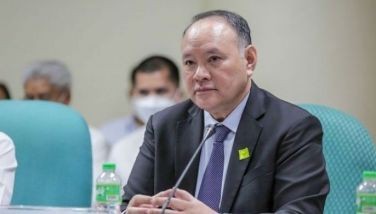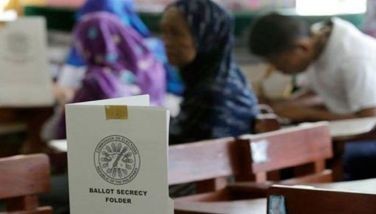The bottom line: Issues in Corona trial

MANILA, Philippines - After 42 trial days and close to five months of legal debate, the impeachment trial of Chief Justice Renato Corona is coming to an end. Final arguments were set by the presiding officer today with a verdict by the impeachment court expected forthwith or, at the latest, tomorrow. This brief legal commentary seeks to sift through the evidence adduced by both sides and focus attention on the remaining bottom line issues.
With the admission last Friday of Chief Justice Corona regarding the existence of undisclosed dollar deposits amounting to approximately $2.4 million and peso deposits of over P80 million, the work of the Senate impeachment court has been simplified.
There are still three remaining Articles of Impeachment in play (Articles 2, 3 and 7) but the focus is really on Article 2, which charges the respondent with culpable violation of the Constitution and betrayal of public trust in failing to publicly disclose his assets, liabilities, and net worth. Given the evidence presented by both the prosecution and defense, there appears to be two basic issues that the court will need to pass judgment upon:
1. In rendering a judgment of conviction or acquittal, the senator-judges will need to satisfy themselves regarding the veracity and bona fides of the explanations provided by the Chief Justice in respect of his a) real properties; b) dollar deposits; and c) peso deposits.
a. Real properties
Allegation: The respondent violated the rule that a public officer must provide an updated good faith fair market value estimate of each asset contained in the SALN.
Explanation: The values of these properties are allegedly those contained in the sale documents as filed with the Register of Deeds. There is no obligation to disclose properties purchased on installment before turnover of the same to the buyer.
Counter explanation: Being assets, properties bought on installment (together with the corresponding installment payments already made) should be reported in the SALN when they are actually purchased.
b. 2.4 million US dollar deposits
Allegation: The US dollar deposits (or its peso equivalent) were not reported in the SALN. The 1987 Constitution and Republic Act 6713 require a public officer to disclose all of his assets.
Explanation: The confidentiality clause in RA 6426 (Foreign Currency Deposit Act) exempts a public officer from the need to disclose foreign currency assets in the SALN.
Counter explanation: The Constitution trumps any law passed by Congress. RA 6713 is a later statute than RA 6426. The confidentiality clause in RA 6426 is directed to banks and does not apply to the depositor. Such an interpretation will enable public officers to hide not only their foreign currency deposits but their assets located abroad as well. Similarly, corrupt officials can escape accountability by simply converting their peso accounts to foreign currency accounts.
c. 80 million peso deposits
Allegation: The peso deposits in the respondent’s SALN were grossly under reported.
Explanation: A substantial bulk of the funds (at least P77 million) belong to Basa-Guidote Enterprises Inc (BGEI), his children, and his late mother; and were co-mingled with his own funds.
Counter explanation: The deposits were all in his name. Aside from his testimony and evidence of payments received in connection with the BGEI property, there was no other documentary proof presented to show that these funds belonged to someone else.
2. By voting to convict, can the senator-judges impose a penalty other than removal?
Article XI Section 3(7) of the 1987 Constitution provides that: “Judgment in cases of impeachment shall not extend further than removal from office and disqualification to hold any office…”
Literally, this provision can be interpreted to mean that while the penalty cannot go beyond removal from office and disqualification, the impeachment court can impose a lesser penalty such as reprimand or censure. However, the rules of the impeachment court (Senate Resolution No. 39) provide that:
XXI. The trial of all the Articles of Impeachment shall be completed before the senators vote on the final question on whether or not the impeachment is sustained. On the final question whether the impeachment is sustained, the vote shall be taken on each Article of Impeachment separately; and if the impeachment shall not, upon any of the articles presented, be sustained by the votes of two-thirds of all the Members, a judgment of acquittal shall be entered; but if the person impeached in such Articles of Impeachment shall be convicted upon any of said articles by the votes of two-thirds of all the Members, the Senate shall proceed to pronounce judgment of conviction, and a certified copy of such judgment shall be deposited in the Office of the Secretary of the Senate. A motion to reconsider the vote by which any Article of Impeachment is sustained or rejected shall not be in order.
Hence, a senator-judge who does not believe that removal and disqualification from office is commensurate to the offenses committed should register a vote of acquittal.
Bottom line, in reaching its verdict, the impeachment court must take into account: 1) the explanations proffered by the respondent in respect of the non-disclosed and under-disclosed assets; 2) the materiality and extent of non-disclosure; 3) the proportionality of the offense charged and the penalty to be imposed; and 4) the position of the respondent as Chief Justice of the Supreme Court of the Philippines and his continuing credibility to lead the judiciary.
- Latest
- Trending






























